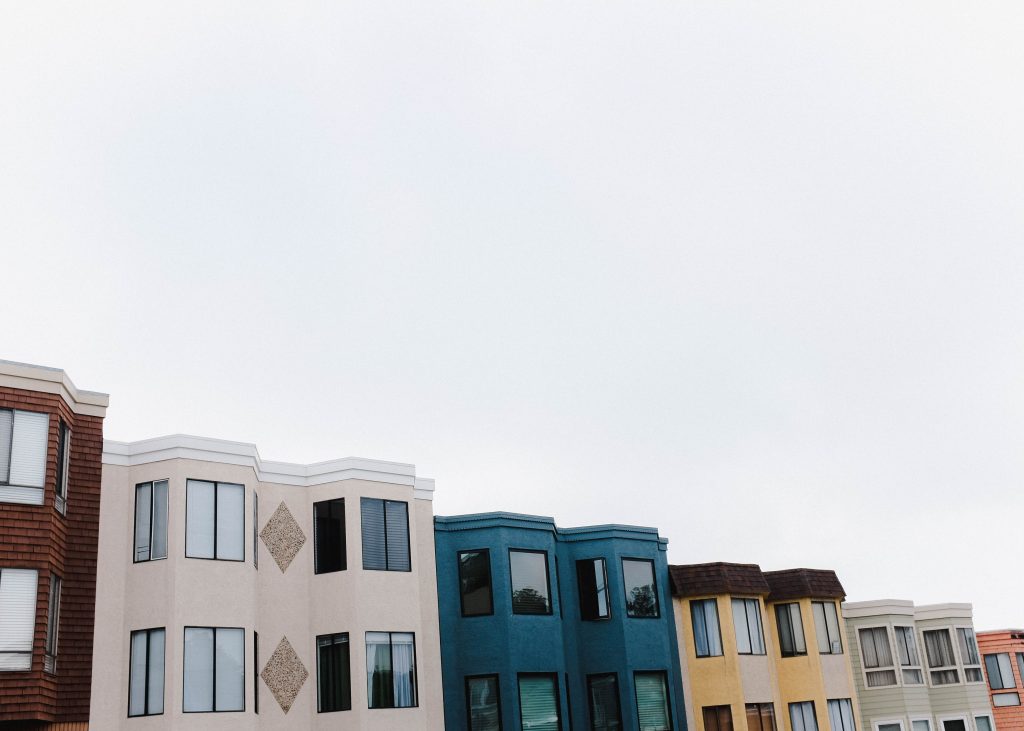With San Francisco’s median home price now sitting at more than $1 million, many buyers are opting to purchase condos or Tenancy in Commons (TICs) as a first home. If you’re thinking about buying either type of San Francisco home, a bit of research will go a long way toward helping you know if it’s the right fit for your budget and lifestyle. I recommend buyers carefully investigate: 1) Homeowners Association (HOA) rules, 2) finances, 3) management, 4) current or potential litigation, and 5) insurance coverage before making an offer.
HOA Rules
You’ve found a great San Francisco condo or TIC, now it’s time to dig a bit into where you’re putting your hard earned money. Start your investigation by studying the HOA’s Covenants, Conditions and Restrictions (CC&Rs), by-laws, and house rules. These documents tell you how much you will pay the HOA (for maintenance, etc) on a regularly scheduled basis, as well as what you can and cannot do in your home. They are the rules that all owners/occupants are expected to abide by. The CC&Rs will give you information such as pet restrictions (including size, breed, etc.). They will tell you about common area rules (pool hours, garden planting, etc.) and rules regarding the use of your home. Examples include the installation DirecTV satellites, placing a bbq grill on your patio, and hanging planters outside of your windows. As you can see, it is important that buyers read the CC&Rs before electing to purchase, as some rules may significantly effect you (or your pet!).
HOA Finances
Next, I recommend that buyers examine HOA financial records. Your potential HOA should have current and past years’ budgets and income/expense statements. Also, the HOA should have a balance sheet showing its financial position. Look to see where the association is spending its money. What is included in your monthly dues? Are there any upcoming projects that will require a “special assessment” from the homeowners? How are the reserves? Is there enough money to maintain the property and take care of unexpected issues that might come up? Projects in San Francisco can be costly, it is important to make sure the HOA is prepared to foot the bill if something should arise (and not surprise you with an unexpected assessment).
HOA Management
When buying into a common interest development, you also need to decide whether a larger or smaller project works for your lifestyle. Large condo developments tend to have professional/outside management and more amenities, whereas smaller condos are usually self-managed with fewer features. Monthly HOA dues are typically more for large developments. Where’s that money going? Walk around the complex and see how well the common areas are being taken care of. Ask yourself whether you want others to manage the property on your behalf, or whether you’d prefer to take care of landscaping, maintenance issues, and the like.
Ongoing or Pending Litigation
Something to definitely look into is whether there are any current or pending lawsuits involving the HOA. For newer projects (which are sprouting up in various parts of San Francisco), it will be difficult if not impossible to obtain financing on projects that are involved in a lawsuit — banks don’t want to risk money if there is a problem with the collateral. If litigation is ongoing, HOAs tend to raise monthly assessment fees to offset the cost of attorney fees.
Condo Insurance Coverage
I recommend San Francisco buyers examine the insurance coverage for the condo or TIC they are considering. Is there enough coverage to rebuild/rehab the property if it suffers major damage? What exactly is covered? Policies typically cover fire, general liability, board of director insurance and fidelity bonds. What other type of coverage might you need? Here in the San Francisco Bay Area earthquake coverage is a good idea.
Buying a Condo / TIC in San Francisco
Condos and TICs are a great purchase, but it is imperative that you made a well-informed purchase decision when it comes to spending you money. Condos and TICs purchases are more complicated than single family homes because you will need to make joint decisions with other owners, and others will dictate to a certain degree what you can do with your own home. Once you have done your homework, you will reach the closing table knowing you made a great Bay Area real estate investment.



